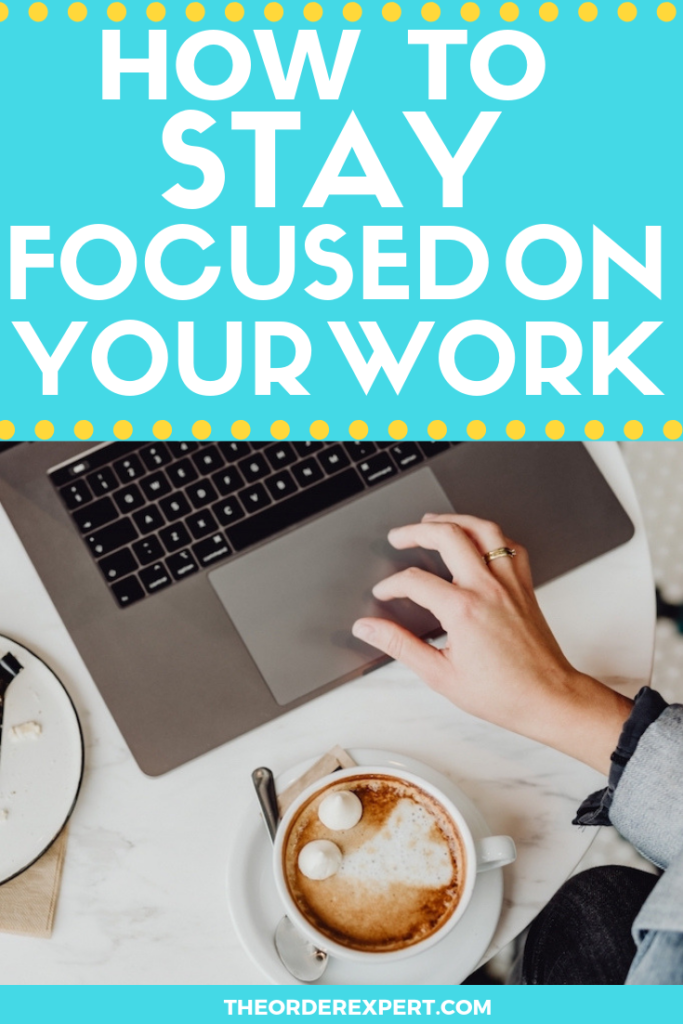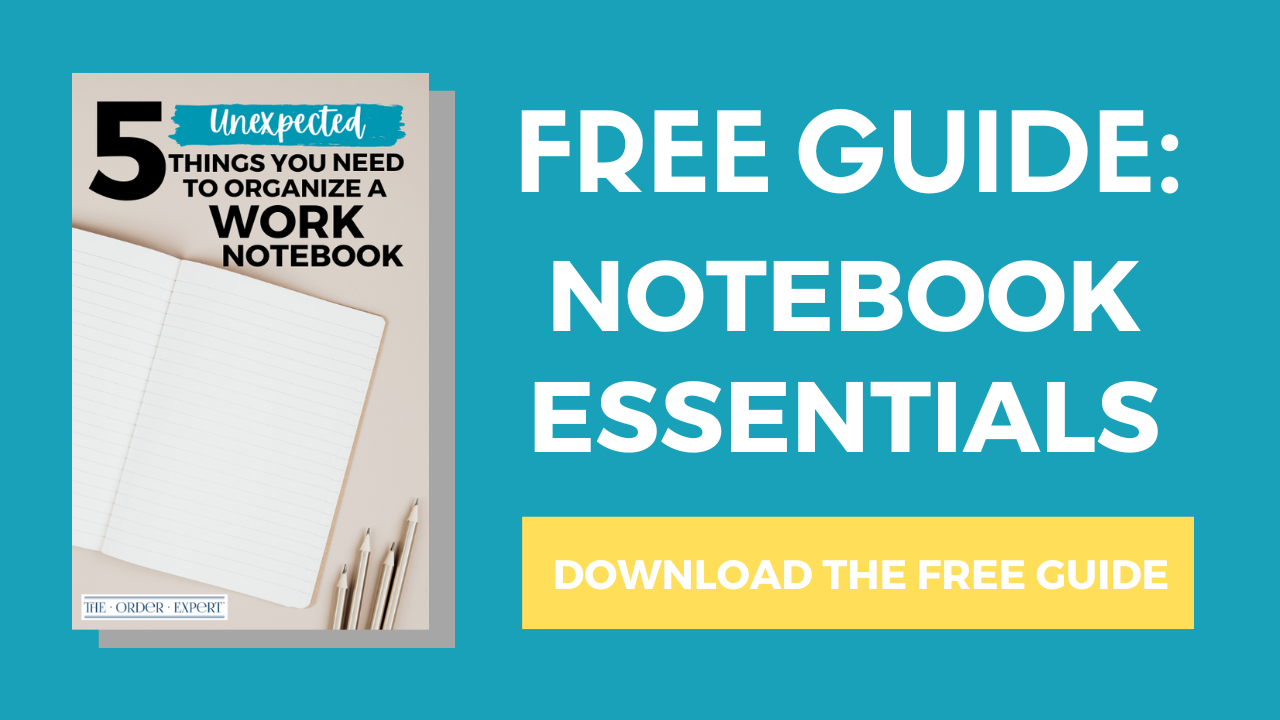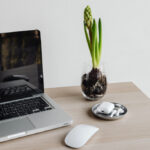
Have you ever thought about how to be focused when you sit down to work?
Are you looking for some practical tips on how to be focused at work?
Staying focused on your work can be a huge challenge in today’s busy world.
We’re constantly bombarded by distractions from many different angles at home, work, and beyond.
We have to fight the siren song of our digital devices, deal with push-notifications, text messages, and alerts.
We battle noise pollution from streets and offices, and side-step visual pollution in the form of advertisements and less-than-aesthetically pleasing signage and landscapes.
In some ways, it may seem as if the world is just one giant distraction!
All the more reason to get serious about the smart steps you’ll need to take to help you focus on your work.
In this post, I offer a collection of 25 tips on how to focus on work at home, the office, the library, and anywhere in between.
You can use these tips to help you complete any form of work, be it performing a household task or chore, running an errand in your hometown, completing a project at work, or tackling a school assignment.
The general idea is to help you filter out unnecessary stimuli in your immediate environment so you can focus on whatever it is you’re supposed to be doing.
With practice, you’ll get a better understanding as to the types of stimuli that zap your attention…and what you can do to lessen their impact while you work.
How to Be Focused: A Helpful Analogy
What do you think about when it comes to focusing on your work?
You probably envision yourself sitting at a chair and desk, with your head tilted down, totally engrossed in a book, chart, document, screen, or other work-related item.
You might see yourself making progress in your work, breezing through tasks at a fast clip, and successfully checking off your to-dos for the day.
While we can clearly see ourselves focusing on our work in our mind’s eye, we tend to overlook what truly needs to be done in order to reach our desired goal.
Focusing on your work requires you to drastically reduce the amount of external stimuli in your immediate environment.
You must do your best to remove the effect of items that hinder your ability to physically work in a space. Or lessen those items vying for your time, energy, and attention.
You sharpen your focus by reducing the amount of distractions or “blur” surrounding you.
One way of thinking about this is to compare the process with that of using a pair of binoculars. Binoculars are used to view far away landmarks up close, be it a lighthouse, mountain peak, or lake.
In order to properly use binoculars, you need to adjust the focus on the lenses so that the item in question is in focus. Ideally, you want to focus on a landmark so the image is crystal clear, and not blurry or distorted.
What’s more, for every new landmark you wish to focus upon, be it up close or far, you’ll need to adjust your focus. That’s the only way you can clearly see your desired visual target.
It doesn’t matter what anything else looks like in the viewfinder space, so long as you can see your target.
So, how can we “get rid of the blur” when it comes to focusing on our work? It’s all about removing or eliminating those things that will distract our attention while we work.
You want to create a work environment that is as clean, comfortable, and conducive to doing your best work as possible.
Below, you’ll find 25 ways to help yourself stay focused on your work. I’ve organized each of these tips according to the five senses of the body: sight, smell, sound, taste, and touch.
Each of the tips seeks to lessen the amount of stimuli in your environment.
You may find some tips to be more helpful for some types of work than others. You may also find certain type of stimuli bother, annoy, or distract you more than others.
What distracts one person may not be a distraction to another. With practice, you’ll learn which type of environments help you stay focused.
How to Stay Focused: The Sense of Sight
There’s a reason for the phrase, “Out of sight, out of mind.” Eliminating visual stimuli in your immediate work area can help you better focus on your work. Here’s several tips to try:
Remove non-essential work items from your immediate work area.
If you truly want to focus on your work, you should do everything in your power to remove non-essential work items from your workspace.
Temporarily relocate non-essential work items, such as books, papers, tools, digital devices, office supplies, and files.
Move items to a separate desk, counter, or table top, closet, or even a different room.
Declutter your desk or work area.
This tip is similar to the one above, yet slightly different.
Do your best to temporarily declutter or remove items that are not directly associated with your work, yet compete for your attention while you work.
In this case, place personal mementos like photographs, post cards, notes, and desk toys into a desk drawer.
Tidy up receipts, sticky notes, and office supplies at your workstation.
Change your view.
Are you easily distracted by things in your immediate line of sight, such as people walking by your workspace, or a stunning city skyline outside your office window?
Try changing your seat so that you are facing a wall and have your back to foot traffic, or drawing window shades or curtains so you’re less likely to peek outdoors.
Another option is to select a work location with less foot traffic, or fewer windows.
Be smart about your screens.
Just because you can keep fifteen tabs open in your internet browser window doesn’t mean you should.
Before sitting down to work at the computer, log out of unnecessary programs, applications, and windows.
If it’s available in your computer program or application, try using the focus view while you work.
Check your peripheral vision.
You may be distracted by items sitting in your peripheral vision or to the sides of your line of sight…without you even realizing it!
Consider removing clutter and other items from the left and right of your desk or workspace to an area behind you, in a closet, or in a desk drawer.
How to Stay Focused: The Sense of Smell
Odors…as a distraction? You may not always notice or think about it, but your ability to focus on your work can be seriously influenced by odors. Here’s how to nix these types of distractions:
Do a deep clean.
Sniff, sniff…say, what’s that smell? Odors can lurk in flooring, upholstery, and office furniture.
Get a jump on spring cleaning by cleaning up your work area.
Wipe down and disinfect the top of your desk, remove trash, vacuum and shampoo the carpet.
You can also sweep and mop floors, vacuum area rugs and furniture, and clean window treatments.
Freshen up the air.
Air can quickly grow stale in an office or other closed room, making you feel sleepy and less alert.
Freshen the air by throwing open the windows, if you can, open doors to create a draft, open air conditioning and heating vents.
If odors remain a problem, try switching out old air filters for new ones, or install a new air deodorizer or freshener.
Launder clothing.
Sometimes outdoor and indoor odors can stay hidden in clothing.
You may not notice that odor of cigarette smoke or steak on your clothes until after you’re sitting at your desk, causing you to experience a odiferous afternoon.
Dry clean blazers, coats, and jackets as necessary. For a quick fix, apply a spray of fabric deodorizer on the offending garment in question.
Find a new work location.
Odors can easily overwhelm a work area, be it the smell of burned popcorn, freshly applied paint, or asphalt and tar.
Hopefully, the offending odor will be temporary in nature, but if you really can’t stand a certain odor, you may want to find yourself a temporary work location in the meantime.
Try using a co-working space, library, public space, cafe, restaurant, or office rental.
Grab a box of tissues.
Sniffling and sneezing as you battle a lingering cold? Get a decent-sized box of tissues for your workspace.
It’ll save you countless trips to the restroom for a facial tissues, and make catching a runny nose far easier.
And of course, make sure you have a wastebasket nearby so you can easily dispose used tissues.
How to Stay Focused: The Sense of Sound
Whether it’s a jack hammer drilling into the sidewalk on a city street or a heated argument, sounds have a big impact on your ability to focus on your work. Here’s some things you can do to minimize the pain:
Limit audible alerts and updates.
You don’t need to hear every single alert, update, or ring on devices, be they digital or analog.
Try disabling audible push notifications and alerts on apps and temporarily undo the vibrate setting on your on cellphone.
Set email updates to silent, set your landline phone to go directly to voicemail, or switch your devices to airplane mode.
Encourage the sweet sound of silence.
You can do a lot to cut down on distracting sounds in your immediate environment.
Before sitting down to work, switch off the television and radio, and be sure to logout of video and podcast services.
To reduce ambient noises, like the sound of traffic outdoors, indoor heating and cooling vents, or conversations, use a white noise generator.
Place earplugs in your ears, buy noise-cancelling headphones, or simply shut your office door.
Search for locations conducive to focus.
Sometimes you’ll have to actively find quieter locations in which to do your work.
Consider working in a library, or a designated quiet room, or work area.
If you’re able to do your work remotely, scout out lower or upper work floors or areas with less noise, or quieter co-working spaces and coffee shops.
Make sure you’re playing appropriate music for the task at hand.
If you can listen to music while you work, make sure it doesn’t distract you too much.
Try experimenting with different types of music when working on different tasks.
For example, you may find soft or instrumental music more conducive to working on a report, while rock music may be your go-to music for collating papers and shredding files.
Work different hours.
Sounds are typically at their highest during rush hours and the work day in general.
Consider making use of quieter times before and after the work day for deep concentration type work or for when you really need silence.
How to Stay Focused: The Sense of Taste
We’ve already talked about the sense of smell, so how can the sense of taste affect your ability to get things done? You may be quite surprised! Here are five thoughtful tips to follow:
Floss those teeth.
Having a bit of food stuck in your teeth can really be distracting while you work.
Consider keeping a roll of dental floss, toothpicks, or individual dental flossers on hand to dislodge stubborn bits of food.
Don’t forget to brush.
Feel like savoring the flavor of your lunch for the entire afternoon?
Get in the habit of brushing your teeth directly after having a meal or snack.
You can keep a toothbrush and a tube of toothpaste handy in your purse, bag, or desk drawer for easy access.
Avoid strong-tasting foods.
If you know the taste of certain foods linger in your mouth after eating them, you may want to stay away from them before you work.
Skip that spicy, bitter, or pungent meal option for a more muted one.
Pay attention to those snacks.
It may not seem like it, but keeping drinks, candy, and gum near your workspace can distract you as your work, turning your work session into an impromptu snack session.
At the very least, it can turn your desk or work area into a magnet for crumbs and spills.
Keep your snacks tucked away and bring them out only break time.
Hydrate on a regular basis.
It’s always a good idea to make sure you’re getting enough water to drink during the day.
Keep a water bottle by your desk, make a point to drink from it at least once every hour, and refill the bottle regularly.
How to Stay Focused: The Sense of Touch
How truly comfortable are you while you work? If you’re feeling less than focused in your work, you may want to give yourself a bit of a reprieve. Here’s a few things to try out:
Replace or upgrade your chair.
Are you sitting on a chair that’s not giving you much rear and back support?
If so, you might want to consider replacing it with a new one.
You can also look into buying some supplemental chair cushions or supports if you’re not ready to purchase a new chair.
Repair a broken tool.
A broken tool, such as a computer keyboard, printer, or ruler, can really cramp your work style.
Before setting off for your next work session, make a priority to replace a broken or damaged tool.
This way, you’ll be able to focus on your work, without having to worry about or constantly fiddle with a less-than-stellar tool.
Wear non-constrictive clothing.
One of the easiest ways to be more comfortable in your work is to wear non-constrictive clothing.
Ditch tight and binding clothing for more loose and comfortable options.
This can be a big help if you’re sitting in one place for long periods of time, or are constantly on the move.
Reevaluate your footwear.
It’s hard to focus on your work if your shoes are pinching your toes or your soles are almost worn out.
Take a look at your shoe collection and consider replacing old or worn shoes, or swapping an uncomfortable pair of shoes for a more comfortable pair in your closet.
Remove accessories as needed.
Fashion accessories can sometimes get in the way of your work flow.
Depending on the circumstances, you may want to temporarily remove watches, fitness trackers, bangles, rings, scarves, and neckties.
Just make sure you tuck away these items in a safe location so they won’t get lost while you work.
How about you? How do you stay focused when you work? What are some steps you’ll take in future to help you focus and get things done? Join the conversation and leave a comment below!






0 Comments